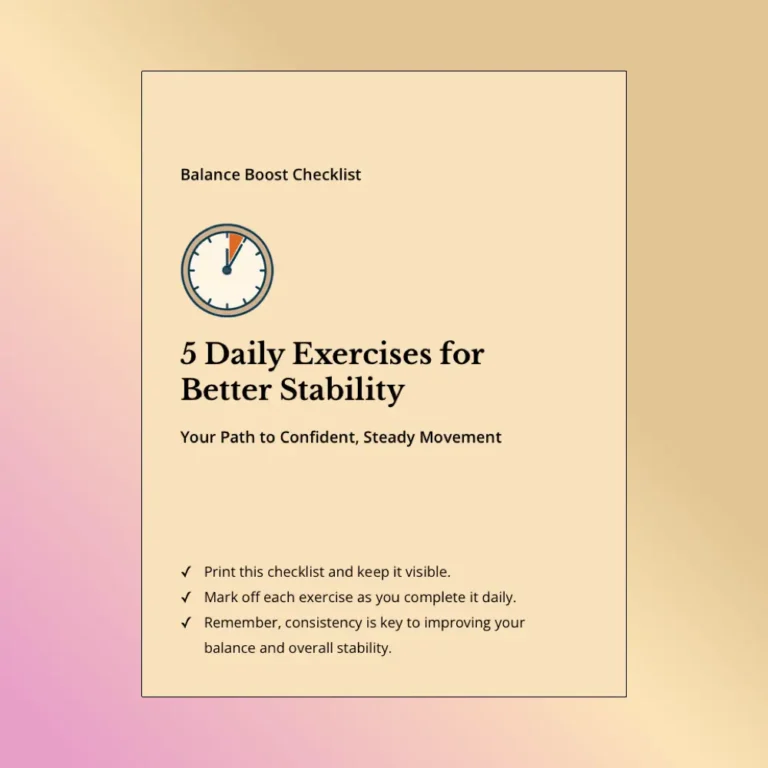
Highlights

As we grow older, the simple act of staying upright becomes a daily challenge, a challenge that many seniors find increasingly difficult. Falls among older adults have become a quiet epidemic, often leading to serious injuries and a loss of independence. But an able preventive measure against these accidents might be closer than you think.
A balanced diet, packed with specific nutrients, can make a remarkable difference in maintaining stability and even help prevent conditions like osteoporosis. Maintaining a balanced diet can result in many benefits, such as developing healthy eating habits and even ensuring seniors live a longer and more active lifestyle. Let’s explore how the foods we eat can keep us steady on our feet and confident in our movements.
Maintaining a balanced, nutritious diet isn’t just about satisfying hunger; it’s about giving our bodies what they need to function at their best, especially when it comes to balance and coordination. A well-rounded diet plays a key role in keeping muscles strong, which is absolutely necessary for stability. Strong muscles give our joints the support they need and help us move through our daily lives safely.
It’s worth noting that more than one in four adults aged 65 and older falls each year. These falls often lead to severe injuries, hospital stays, and sometimes a decline in overall health. The link between what we eat and our risk of falling is significant. Good nutrition helps maintain healthy muscles and supports proprioception, our body’s ability to sense its position in space, which naturally decreases with age.
Often called the “sunshine vitamin,” Vitamin D helps our bodies absorb calcium and supports bone health. For older adults, having enough Vitamin D is crucial for proper muscle function and, ultimately, good balance. You can get Vitamin D from sunlight, fatty fish like salmon, and fortified foods. Many seniors also benefit from taking supplements, particularly during winter when sunshine is limited. Understanding the importance of vitamin D for the elderly is essential for maintaining bone health and preventing falls.
Protein serves as the foundation for muscle tissue. For older adults, getting enough protein is essential for maintaining muscle mass, which directly affects stability and helps prevent injuries. Good sources include lean meats, beans, dairy products, and plant-based options. Health experts suggest that seniors should actually eat a bit more protein than younger adults to help fight against natural muscle loss. Learning about the protein requirements for seniors can help older adults maintain a healthy diet that supports overall well-being.
Adding the right foods to your daily meals can be a delicious way to improve balance. Here’s a list of top foods that seniors should try to include in their diets:
Picture sitting down to a warm bowl of quinoa salad topped with grilled salmon, sprinkled with walnuts, and a side of steamed kale. Not only does this meal look appetizing, but it’s also packed with nutrient-dense foods that can help keep you steady on your feet.
Creating a diet that helps prevent falls doesn’t have to be complicated. Here are some approaches to ensure your meals are balanced and beneficial:
Building a balanced eating plan is essential for seniors. Many seniors struggle with maintaining a healthy diet due to various factors such as decreased appetite, medication side effects, or difficulty preparing meals. Nutrition tips for older adults include creating meal plans that are both nutritious and easy to prepare. A balanced plate that includes lean protein, whole grains, and plenty of fruits and vegetables can help seniors receive the nutrition they need to maintain their health and prevent falls.
Nutrition and physical therapy work wonderfully together to improve balance. Customized exercise programs can strengthen muscles and improve proprioception, both of which are essential for preventing falls. Physical therapists can develop personalized meal plans with exercises specifically designed to increase stability.
Combining good nutrition with physical therapy means focusing not just on what you eat but also on how you move. For instance, an older adult might benefit from strength training alongside a protein-rich diet to help muscles recover and grow. Regular fall prevention exercises combined with proper nutrition for seniors can significantly reduce the risk of falls and help maintain a healthy weight.
What nutrients are essential for balance? Key nutrients include Vitamin D, protein, calcium, and Omega-3 fatty acids, all of which contribute to muscle strength and stability.
Why is Vitamin D important for seniors? Vitamin D supports bone health and muscle function, reducing the risk of falls and fractures.
How does protein contribute to stability? Protein helps maintain muscle mass, which is crucial for balance and preventing falls.
Nutrition plays a central role in maintaining balance and preventing falls among older adults. By focusing on key nutrients like Vitamin D and protein, seniors can improve their muscle strength and proprioception. As we’ve seen, simple changes to your diet can lead to significant improvements in stability and overall health.
The nutritional needs of older adults change after the age of 50, and even more so after the age of 65. Senior nutrition should focus on nutrient-dense foods rather than empty calories. A diet rich in protein, vitamins, minerals, and healthy fats can help older adults maintain their physical strength and cognitive function. Proper nutrition for seniors is not just about preventing chronic diseases but also about improving quality of life and supporting aging well.
Let’s take active steps to fill our plates with nutrient-rich foods, consult with healthcare providers for personalized advice, and adopt a lifestyle that promotes both health and independence. Remember, every meal is an opportunity to support your balance and improve your overall well-being.
Let’s make maintaining a healthy diet a habit among the elderly!
For more information on nutrition for seniors, check out this insightful article on healthy eating for seniors. Don’t forget to explore our blog for more tips on improving your nutrition and healthy aging habits.
